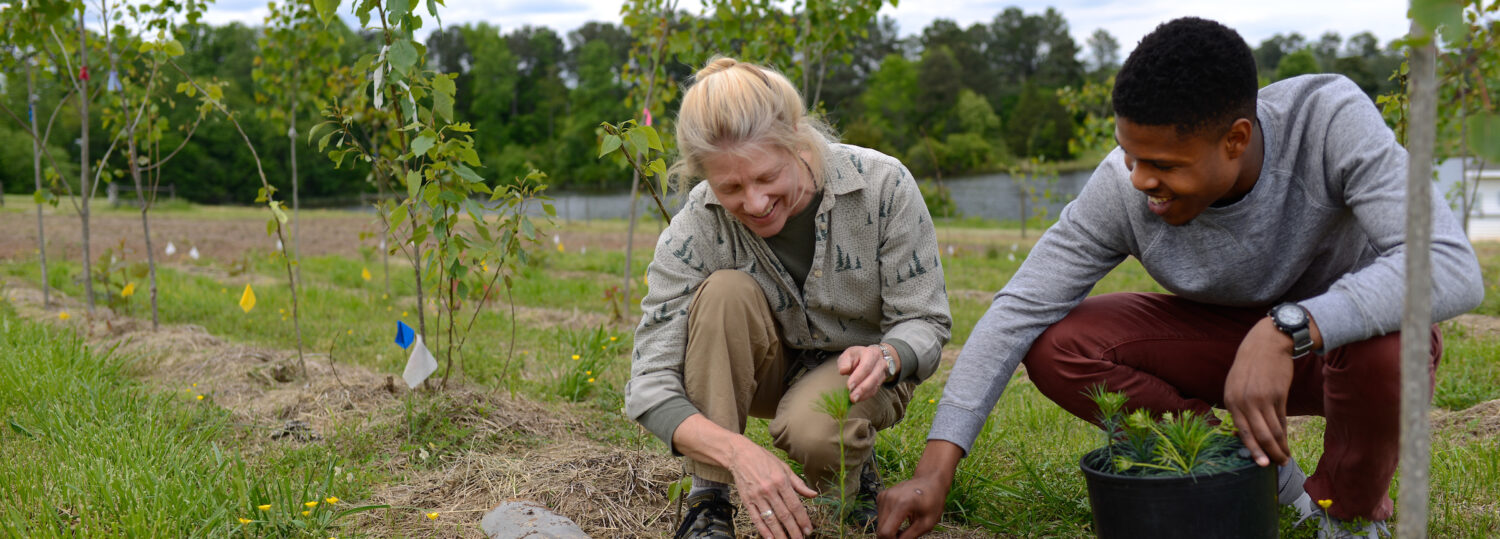NC State has a long history of external engagement and public service. However, at a large university like NC State where the motto “Think and Do” prevails, internal and external constituents often struggle to understand faculty and staff engagement and to make connections across disciplines and organizations.
There is now a new tool for faculty and staff to utilize. The Office of Outreach and Engagement is excited to announce Collaboratory, NC State’s new public-facing platform to capture the numerous, diverse ways faculty and staff are partnering with external organizations to tackle important public issues. Collaboratory provides a unique comprehensive view of NC State faculty and staff external engagement and public service, increasing the university’s capacity for data-driven decision making and facilitating connections that strengthen the culture of engagement.
Tracking External Engagement and Public Service
Collaboratory collects information about the who, what, where, when, and why of activities designed with and for external communities, including detailed descriptions, location, community partner roles, outcomes, and alignment with important benchmarks such as NC State’s Wolfpack 2030 goals and the United Nations Sustainable Development goals. Vice Provost for Outreach and Engagement, Leslie Boney, explains, “We are thrilled to finally have one place to store and show all the ways people and organizations at NC State engage with external partners and serve the public. Collaboratory’s breadth and depth of information provides a tremendous opportunity for internal and external stakeholders to get the data they need to make important decisions that can propel this work forward.”
Early Collaboratory contributors have confirmed the potential benefits and efficiency of tracking external engagement and public service data. Individual faculty and staff are using Collaboratory to reflect on their engagement and to better document their engagement for promotion and tenure. Centers, institutes, departments, and colleges plan to utilize Collaboratory’s robust built-in reporting features to drive program development, support funding requests, and showcase their engagement. At the university level, Collaboratory offers valuable information for accreditations, rankings, communications, recruitment, alumni relations, and more.
Connections and a Culture of Engagement
Because Collaboratory is public facing, the platform also creates a valuable opportunity to build internal and external connections among faculty, staff, students, and community partners. A search feature allows individuals to find other people who are working in the same geographic region, partnering with the same community organizations, or pursuing similar social issues or types of scholarship. Dr. Kwesi Brookins, Director of the Center for Family and Community Engagement (CFACE), explains, “Collaboratory provides an easy-to-access entry point for external individuals and organizations who want to partner with NC State faculty, staff, and students. The platform also helps faculty and staff build new relationships across academic disciplines and provides students with a way to find courses that have community-engaged components. By bringing people together in this new way, Collaboratory promotes a culture of engagement that strengthens the work we do.”
Next Steps
Faculty and staff response to Collaboratory has been positive. In the first 75 days of launching Collaboratory, over 90 faculty and staff have joined the effort, sharing 150 external engagement and public service activities, and highlighting 135 community partners. The Office of Outreach and Engagement hopes to continue this momentum and has a dedicated team that will help faculty, staff, and units figure out how best to use and add their information into Collaboratory.
If you are interested in being a part of Collaboratory or in learning more about how you can utilize the platform to strengthen your individual or unit engagement and public service, please consider attending a Collaboratory overview session or reach out to Stacy Bluth, Collaboratory Administrator, at sbluth2@ncsu.edu.
